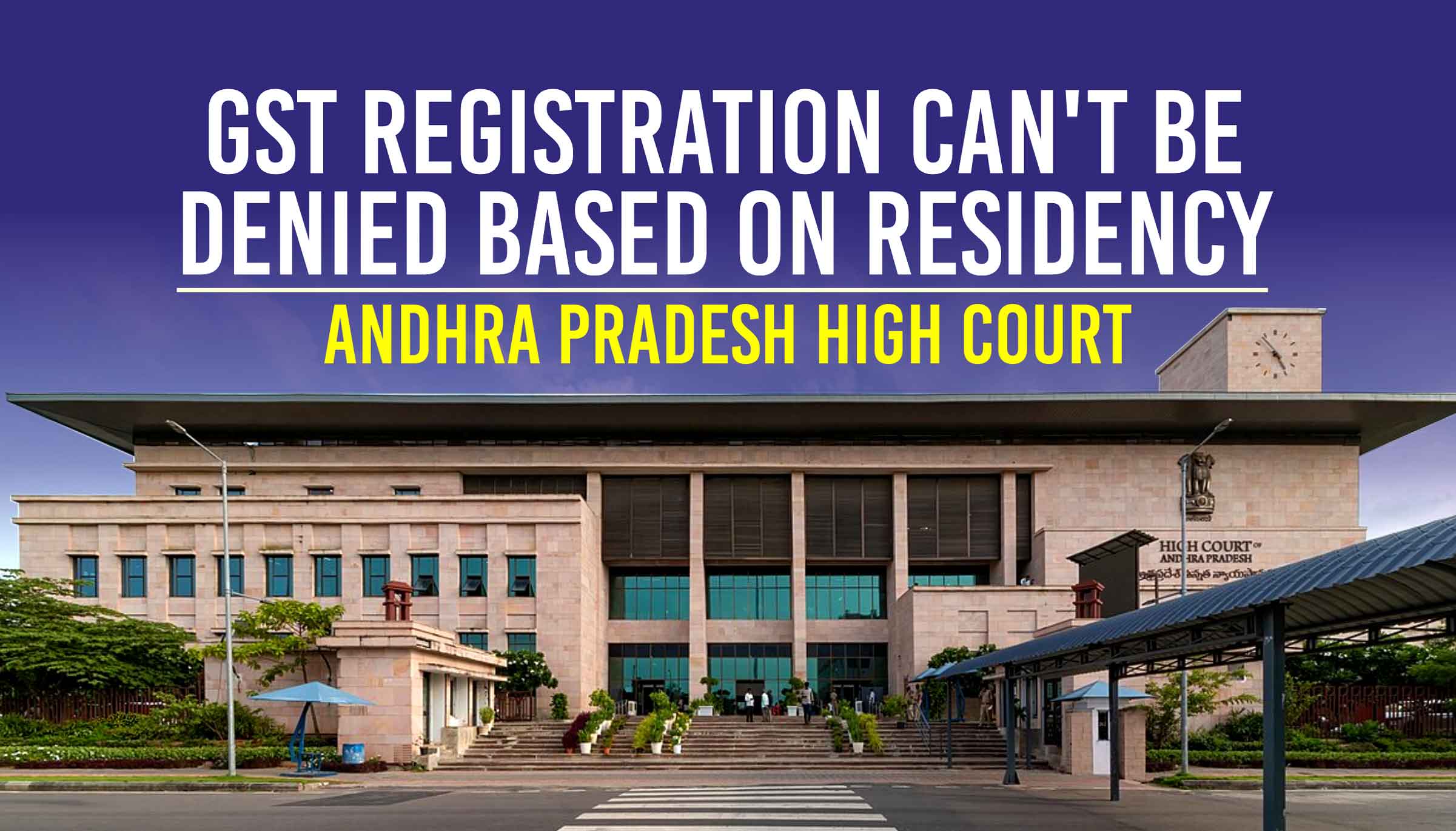GST Registration Can’t Be Denied Based on Residency – AP HC

The Andhra Pradesh High Court (AP HC) has ruled that GST registration cannot be denied merely because a taxpayer is from another state. In the case of Tirumala Balaji Marbles and Granites vs. The Assistant Commissioner, the court clarified that such a rejection has no legal basis under the GST laws. The Division Bench of Justices R Raghunandan Rao and Harinath N firmly stated that businesses have the constitutional right to operate anywhere in India and that the apprehensions of the tax authorities cannot override statutory provisions.
The Case and Its Context
The petitioner, Tirumala Balaji Marbles and Granites, applied for GST registration under the Andhra Pradesh Goods and Services Tax (APGST) Act for its place of business in Rajamahendravaram. However, the Assistant Commissioner rejected the application, citing that both the taxpayer and its authorized representative were not residents of Andhra Pradesh. The authorities argued that granting GST registration to an entity without local representation could potentially lead to tax evasion risks.
Challenging this decision, the taxpayer filed a writ petition before the Andhra Pradesh High Court, contending that there is no statutory restriction preventing an entity from another state from obtaining GST registration in Andhra Pradesh. The rejection, they argued, violated constitutional rights and was not supported by the GST law.
Legal Standpoint Under the CGST Act
The Central Goods and Services Tax (CGST) Act, 2017 and its corresponding State GST Acts lay down clear provisions regarding GST registration requirements. Under Section 22 of the CGST Act, any person engaged in the supply of goods or services beyond a specified turnover threshold is required to obtain GST registration in the state where their business is located.
There is no provision in the CGST Act or APGST Act that mandates an applicant to be a resident of the state where registration is sought. Furthermore, Article 19(1)(g) of the Indian Constitution guarantees the right to practice any trade or business anywhere in India, reinforcing the petitioner’s stance. The court noted that the mere apprehension of tax evasion does not provide a valid legal ground for denying GST registration.
Significance of the Ruling
This ruling is a crucial precedent in ensuring uniform implementation of GST laws across states. If tax authorities start imposing state residency conditions, it could lead to inconsistent interpretations and hinder business expansion. GST is designed as a unified tax system, and arbitrary restrictions on registration contradict its fundamental principles.
By striking down the rejection order, the AP High Court has reaffirmed that businesses must be allowed to register for GST in any state where they conduct operations, without unnecessary barriers. The judgment also signals that state tax authorities cannot impose additional conditions beyond what is explicitly stated in the GST laws.
Conclusion
This case highlights the importance of strict adherence to GST laws and the need to prevent misinterpretations that create compliance hurdles for businesses. Hopefully, other states do not repeat such restrictive practices, which could negatively impact the ease of doing business in India. This ruling provides clarity and ensures that businesses can operate freely without arbitrary registration denials.
